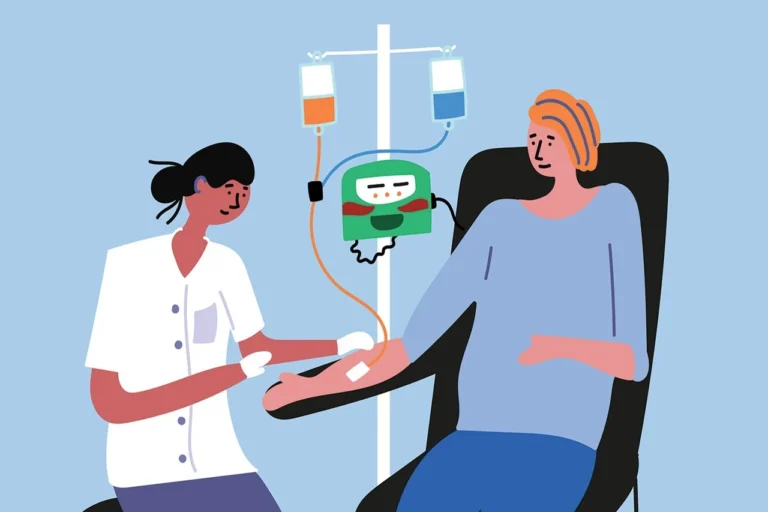
Genentech’s Giredestrant Boosts PFS in ER+ Advanced Breast Cancer
Genentech, a member of the Roche Group, announced encouraging results from the Phase III evERA study evaluating its investigational oral selective estrogen receptor degrader (SERD), giredestrant, in combination with everolimus. The trial enrolled patients with estrogen receptor (ER)-positive, human epidermal growth factor receptor 2 (HER2)-negative, locally advanced or metastatic breast cancer who had previously been treated with a cyclin-dependent kinase (CDK) 4/6 inhibitor and endocrine therapy.
The evERA study achieved its two co-primary endpoints. The giredestrant and everolimus regimen significantly improved progression-free survival (PFS) compared with the current standard-of-care endocrine therapy plus everolimus. This benefit was observed across both the overall intention-to-treat population as well as in patients with ESR1 mutations, a group often associated with resistance to existing endocrine therapies. Although overall survival (OS) results remain immature at this time, investigators noted a positive trend favoring the giredestrant arm. Continued follow-up will further clarify the OS benefit.
Importantly, the safety profile of the combination was consistent with expectations. No new or unexpected safety concerns emerged, and adverse events aligned with the known tolerability of the individual drugs. The findings mark the first head-to-head positive Phase III trial of an all-oral SERD-containing regimen versus standard therapy, underscoring the potential of giredestrant to reshape treatment approaches in this difficult-to-treat population.
“These results show that the giredestrant combination provides a meaningful benefit for ER-positive breast cancer patients whose disease has progressed following treatment with a CDK inhibitor,” said Levi Garraway, M.D., Ph.D., chief medical officer and head of Global Product Development at Genentech. “We look forward to discussing these results with regulatory authorities with the goal of making this giredestrant-based regimen available to many people with advanced ER-positive breast cancer.”
ER-positive breast cancer represents approximately 70% of all breast cancer cases, yet it remains a persistent challenge due to its biological complexity and the development of resistance to standard therapies. After disease progression on CDK inhibitors, patients often face limited treatment options and poor outcomes. By combining giredestrant with everolimus, two complementary pathways are targeted, which may enhance efficacy and delay resistance. Furthermore, the oral administration of both drugs offers patients a more convenient alternative to injection-based therapies, potentially reducing the treatment burden.
Genentech emphasized that its broad giredestrant clinical program continues across multiple treatment settings and therapy lines, highlighting its long-term commitment to advancing care for people with ER-positive breast cancer. Data from the evERA trial will be submitted to health authorities worldwide, with the aim of making this novel combination available to patients as quickly as possible.
About the evERA Breast Cancer study
evERA Breast Cancer [NCT05306340] is a Phase III, randomized, open-label, multicenter study evaluating the efficacy and safety of giredestrant in combination with everolimus versus standard-of-care endocrine therapy in combination with everolimus in people with estrogen receptor (ER)-positive, human epidermal growth factor receptor 2 (HER2)-negative locally advanced or metastatic breast cancer who have had previous treatment with a cyclin-dependent kinase (CDK) 4/6 inhibitor and endocrine therapy, either in the adjuvant or locally advanced/metastatic setting.
The co-primary endpoints are investigator-assessed progression-free survival in the intention-to-treat and ESR1-mutated populations, defined as the time from randomization to the time when the disease progresses or a patient dies from any cause. The trial has been enriched for ESR1-mutated patients above the natural prevalence to assess the efficacy in this population. In the post-CDK inhibitor setting, up to 40% of people with ER-positive disease have ESR1 mutations. Key secondary endpoints include overall survival, objective response rate, duration of response, clinical benefit rate and safety.
About estrogen receptor (ER)-positive breast cancer
Globally, the burden of breast cancer continues to grow, with 2.3 million women diagnosed and 670,000 dying from the disease every year. Breast cancer remains the number one cause of cancer-related deaths amongst women, and the second most common cancer type.
ER-positive breast cancer accounts for approximately 70% of breast cancer cases. A defining feature of ER-positive breast cancer is that its tumor cells have receptors that attach to estrogen, which can contribute to tumor growth.
Despite treatment advances, ER-positive breast cancer remains particularly challenging to treat due to its biological complexity. Patients often face the risk of disease progression, treatment side effects and resistance to endocrine therapy. There is an urgent need for more effective treatments that can delay clinical progression and reduce the burden of treatment on people’s lives.
About giredestrant
Giredestrant is an investigational oral, next-generation selective estrogen receptor degrader (SERD) and full antagonist.
Giredestrant is designed to block estrogen from binding to the estrogen receptor (ER), triggering its breakdown (known as degradation) and stopping or slowing down the growth of cancer cells.
Giredestrant has an extensive clinical development program and is being investigated in five company-sponsored Phase III clinical trials that span multiple treatment settings and lines of therapy to benefit as many people as possible:
- Giredestrant versus standard-of-care endocrine therapy (SoC ET) as adjuvant treatment in ER-positive, human epidermal growth factor receptor 2 (HER2)-negative early-stage breast cancer (lidERA Breast Cancer; NCT04961996)
- Giredestrant plus everolimus versus SoC ET plus everolimus in ER-positive, HER2-negative, locally advanced or metastatic breast cancer (evERA Breast Cancer; NCT05306340)
- Giredestrant pluspalbociclib versus letrozole plus palbociclib in ER-positive, HER2-negative, endocrine-sensitive, recurrent locally advanced or metastatic breast cancer (persevERA Breast Cancer; NCT04546009)
- Giredestrant plus investigator’s choice of a cyclin-dependent kinase (CDK) 4/6 inhibitor versus fulvestrant plus a CDK 4/6 inhibitor in ER-positive, HER2-negative advanced breast cancer resistant to adjuvant endocrine therapy (pionERA Breast Cancer; NCT06065748)
- Giredestrant plus dual HER2 blockade versus dual HER2 blockade in ER-positive, HER2-positive locally advanced or metastatic breast cancer (heredERA Breast Cancer; NCT05296798)
About Genentech in Breast Cancer
Genentech has been advancing breast cancer research for more than 30 years with the goal of helping as many people with the disease as possible. Our medicines, along with companion diagnostic tests, have contributed to bringing breakthrough outcomes in human epidermal growth factor 2-positive and triple-negative breast cancers. As our understanding of breast cancer biology rapidly improves, we are working to identify new biomarkers and approaches to treatment for other subtypes of the disease, including estrogen receptor-positive breast cancer, which is a form of hormone receptor-positive breast cancer, the most prevalent type of all breast cancers.
About Genentech
Founded nearly 50 years ago, Genentech is a leading biotechnology company that discovers, develops, manufactures and commercializes medicines to treat patients with serious and life-threatening medical conditions. The company, a member of the Roche Group, has headquarters in South San Francisco, California. For additional information about the company, please visit http://www.gene.com.







